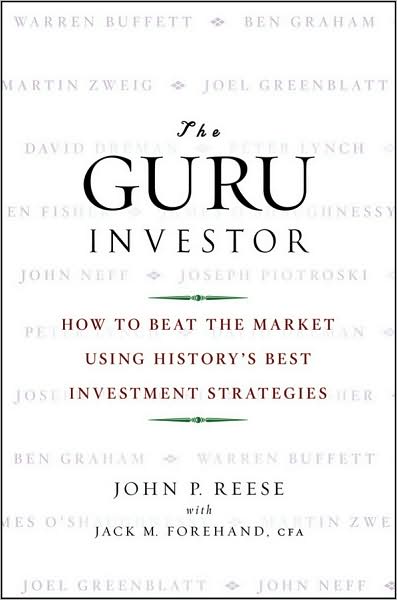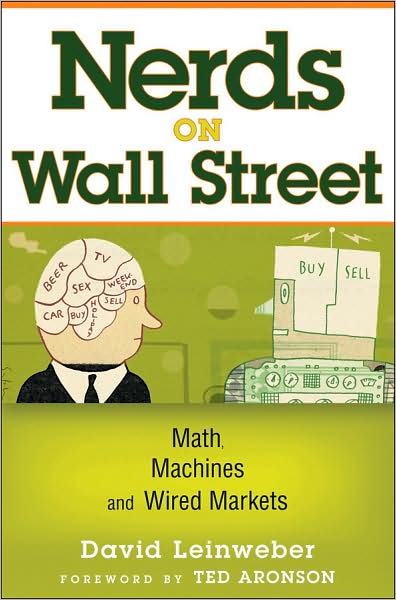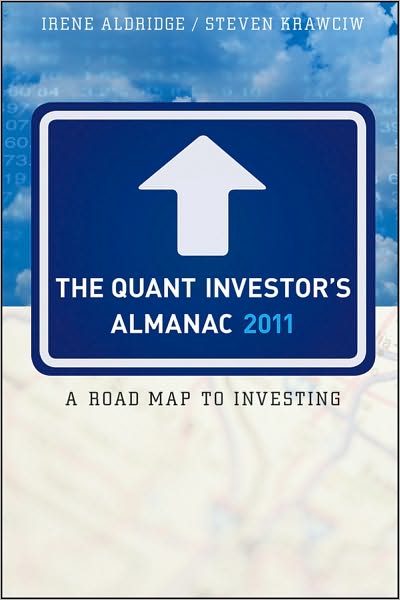Finding Alpha (5 Stars)
What this all says to me is that investors are too hopeful.? They look for the big wins and ignore smaller ways to make extra money.? They swing for the fences and get an ?out,? rather than blooping singles with some regularity.? I like blooping singles with regularity.
I recommend this book for quantitative investors who can find a way to buy it for less than $40.? The sticker price is $95, though it can be obtained for less than $60.? Try to find a way to borrow the book, through interlibrary loan if necessary ? that was how I read?Margin of Safety by Seth Klarman.? Klarman?s book is not worth $1000.? Falkenstein?s book is not worth $95.? Falkenstein?s?very good blog will give you much of what you need to know for free, and even more than he has covered in his book.
This book would also be valuable for academics and asset allocators wedded to Modern Portfolio Theory and a large value for the equity premium, though some would snipe at aspects of the presentation.? Parts of the book are more rigorous than others.
If you still want to buy the book at the non-discounted price, you can buy it here:?Finding Alpha: The Search for Alpha When Risk and Return Break Down (Wiley Finance)
Investing By The Numbers (5 Stars)
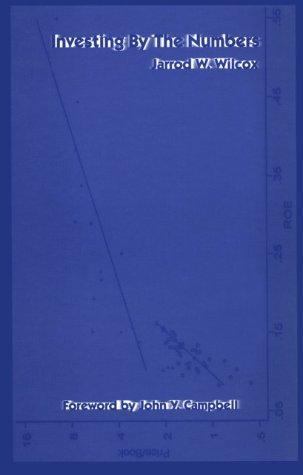
As a young investor using quantitative methods, I found the book useful, and still use a number of its findings in my current investing. Again, this is not a book for everyone ? you have to want to do quantitative investing from primarily a fundamental mindset in order to benefit for this book.
To buy this book: Investing by Numbers
Triumph of the Optimists (4 Stars)
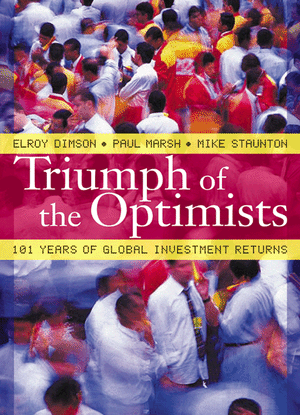
This is an expensive book, and one that may not be for everyone. A cheaper book that covers many of the same issues is Stocks for the Long Run, by Jeremy Siegel. Now going into its fourth edition (I have a signed first edition), it covers many of the same issues, but with more of a US-centric approach, and going back another 100 years (with spotty data).
As I like to say, stocks do well, absent war on your home soil, out-of-control socialism, and severe recession/depression. These books will help you stay in the market even when times are hard. After all, who can tell when the market will turn up? Or down?
To buy this book: Triumph of the Optimists
Quantitative Strategies for Achieving Alpha (4 Stars)

Use the book to guide your strategies.? Look at how you currently analyze stocks, and see if you aren?t missing significant factors that could improve your performance.? Look to balance your strategies such that all of the main factors get some representation.
Also, the summaries of each chapter are simple, and give the main thrust for those who get tired.? Tortoriello does a good job boiling it down for those needing a summary.? He also does not overpromise; the book is free from overselling, in my opinion.
If you want to buy it you can buy it here:?Quantitative Strategies for Achieving Alpha (McGraw-Hill Finance & Investing)
The Complete Guide To Option Pricing Formulas, and Derivatives, Models on Models (4 Stars)
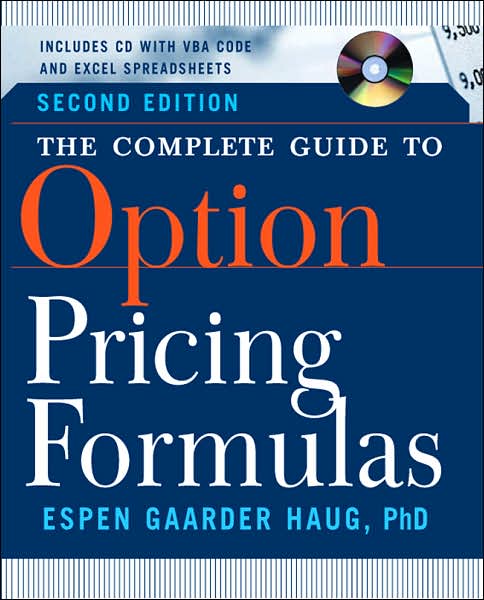
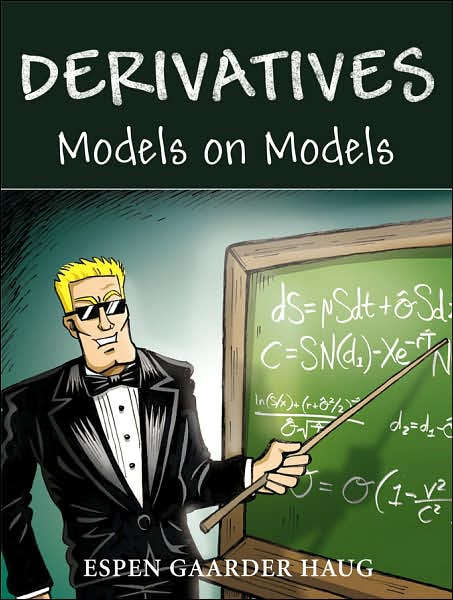
I liked both books, but only a modest fraction of my readers should have any interest here.
If you want it, you can find them here:
The Complete Guide to Option Pricing Formulas
The Guru Investor (3 Stars)
This book would work best for people who want to follow valuation-conscious strategies, and not spend a ton of time at it, if they are willing to put in some time at the beginning setting up stock screens.
If after you have read this, you want to buy the book, you can buy it here ??The Guru Investor: How to Beat the Market Using History?s Best Investment Strategies.
Beating the Market, 3 Months at a Time (3 Stars)

Who might this book be good for? Someone who only invests in mutual funds, and wants to try to get a little more juice out of them. The rules on managing the portfolio are simple enough that they could be done in an hour or two once every three months. Just do it in a tax-sheltered account, and be aware that if too many people adopt momentum strategies (not likely), this could underperform.
To buy this book: Beating the Market, 3 Months at a Time
The Fundamental Index (3 Stars)

I recommend the book. The authors are Bob Arnott, Jason Hsu, and John West. At 260 pages of main text, and a lot of graphs, it is a reasonable read. The tone is occasionally strident toward classic indexing, which to me is still a good strategy, just not as good as fundamental indexing. (It sounds like Bob wrote most of the book from a tone standpoint? but I could be wrong.)
Who should buy this book? Academics interested in the debate, and buyers of indexed equity products should buy the book. It is well-written, and ably sets forth the case for fundamental indexing.
To buy this book: The Fundamental Index
Nerds on Wall Street (3 Stars)
The average reader will learn a lot here.? I recommend the book to those that want to dig into how the equity markets became more computerized.? For those that want to understand the same for the debt markets, that book remains to be written.
If you want to buy it, you can find it here:?Nerds on Wall Street: Math, Machines and Wired Markets
Expectations Investing (2 Stars)

Who would benefit from this book: someone who either wants a detailed means of calculating a DCF model, or a taste of the issues that an analyst/investor has to consider as he evaluates the worth of a company?s stock.
This is a neutral review from me.? I neither encourage or discourage the purchase of the book.? It has its good and bad points.? But if you want to purchase it, you can find it here:?Expectations Investing: Reading Stock Prices for Better Returns.
What Works on Wall Street (2 Stars)

Now, what I liked about the book:
- Combining growth and value strategies produced the best risk-adjusted returns. The growth and value strategies that did the best embedded a little value inside growth, and a little growth inside value.
- Avoiding risk pays off in the long run, for the most part. If nothing else, one can maintain the strategy after bad years.
- Value and Momentum both work as strategies. They work best together.
- He did try to be statistically fair, avoiding look-ahead bias, diversifiying into 50 stocks, avoiding small stocks, and rebalancing annually.
To buy the book: What Works on Wall Street
Quantitative Equity Investing (3 Stars)
You have to have a very strong math background, including the type of Matrix Algebra that one would use in graduate-level Econometrics.? To that end, this book would be most useful to grad students wanting an introduction to how to apply their math skills to the markets.
The book is available here:?Quantitative Equity Investing: Techniques and Strategies (The Frank J. Fabozzi Series)
The New Science of Asset Allocation (2 Stars)

This is not a book for average investors.? It is for professionals who want to brush up their asset allocation skills, and young professionals wanting insight into asset allocation.
The book is available here:?The New Science of Asset Allocation: Risk Management in a Multi-Asset World (Wiley Finance)
The Economics of Food: How Feeding and Fueling the Planet Affects Food Prices (2 Stars)
Anyone who wants a basic understanding of food economics, and how that is impacted by a wide number of factors including using crops for the production of fuel would benefit from this book.? The book is well written, and seemingly balanced.
The book is available here:?The Economics of Food: How Feeding and Fueling the Planet Affects Food Prices
The Quant Investor?s Almanac 2011 (1 Star)
If you run a quantitative hedge fund, and aren?t aware of the government data news flow each week, or how it can be used for profit, then this is the book for you.
If you want to learn about some obscure quantitative strategies just for fun, this could be a good book for you.
If you want to, you can buy it here:?The Quant Investor?s Almanac 2011: A Roadmap to Investing.


